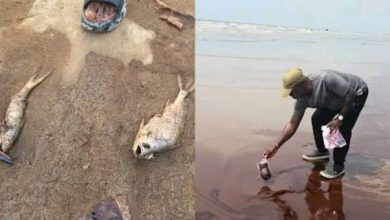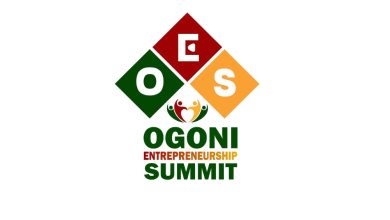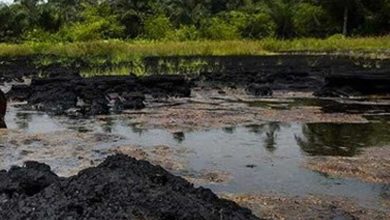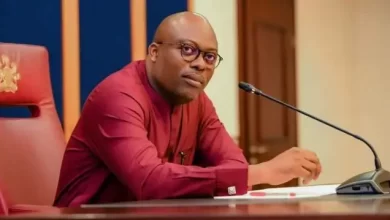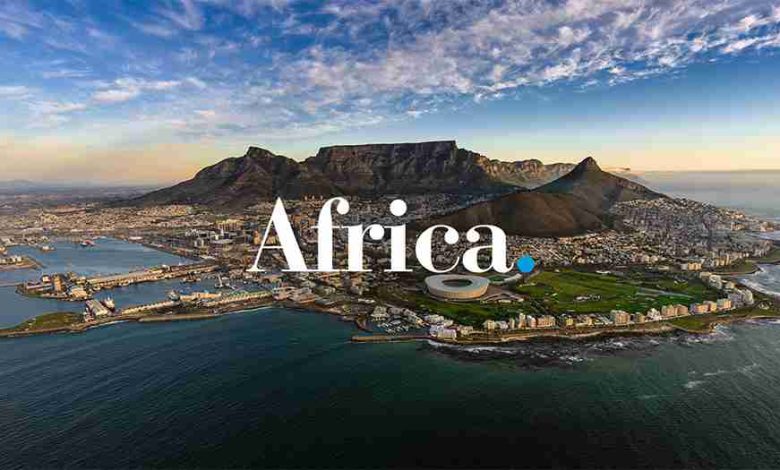
The World Bank has urged Nigeria to ensure ongoing reforms improve citizens’ welfare, warning that 139 million Nigerians still live in poverty despite signs of economic stability. At the launch of the Nigeria Development Update in Abuja, Country Director Mathew Verghis said exchange rate and fuel subsidy reforms have set a foundation for growth but must now “deliver for the people.” Meanwhile, the UN’s 2025 Global Health Report ranked Nigeria lowest globally in life expectancy at 54.9 years — far below the world average of 73.7. The report linked the decline to poor healthcare, insecurity, and poverty. Experts are calling for stronger health and social protection investment to match the government’s economic reform efforts.
The latest World Bank warning that Nigeria’s reforms must begin to deliver tangible improvements in citizens’ welfare exposes a troubling paradox at the heart of Africa’s largest population. While officials in Abuja tout the removal of fuel subsidies and the liberalisation of the exchange rate as evidence of fiscal courage, the reality that most Nigerians live in remains one of deepening hardship. With 139 million people still trapped in poverty and life expectancy now the lowest in the world at 54.9 years, Nigeria’s so-called “reform momentum” risks becoming a technocratic illusion, growth without development, stability without inclusion. This crisis is starkly illustrated by the 2024 SBM Health Preparedness Index (HPI), which reveals a healthcare system in profound distress. According to the report, the national life expectancy figure, a mere 54 years, is not an abstract statistic but a direct consequence of systemic failure. The HPI highlights alarming indicators: an under-five mortality rate of 107 per 1,000 live births and a maternal mortality ratio of 1,047 per 100,000. These figures are compounded by persistent outbreaks of diseases like diphtheria and cholera, a crippling brain drain of medical professionals, and skyrocketing drug prices that have made basic care inaccessible for many. Alarmingly, early indications suggest that the forthcoming 2025 HPI, due for publication in November, will show no meaningful improvement, with the underlying trends pointing to a further deterioration in the country’s health security. Last year’s HPI further underscores a critical funding gap at the subnational level, where healthcare is primarily delivered. While the average state health budget allocation improved to 9.29% in 2023, this remains below the 2020 average of 11.80% and is wildly insufficient. The HPI rankings reveal a country of two halves: southern states like Lagos, Ogun, and Ekiti lead the index, albeit with modest scores, while northern states such as Yobe, Kebbi, and Sokoto occupy the bottom positions, indicating a severe regional disparity in health outcomes and infrastructure. The crisis is further illuminated by a continental comparison. According to the latest UNDP data, Nigeria ranks a lowly 29th in Africa on the Human Development Index. More tellingly, its life expectancy of 54.8 years is not just the continent’s worst, but it languishes far behind nations with similar economic standings, from Ghana to Kenya, and is eclipsed by over two decades in North African countries like Tunisia and Algeria. This confirms that Nigeria’s plight is not merely one of poverty, but a profound failure to convert national resources into longer, healthier lives for its population. The truth is that most of the reforms undertaken over the last two years have been crisis management measures, not prosperity-oriented policies. Their removal, though fiscally logical, has thrust millions into deeper distress without an adequate social protection framework. Inflation and food insecurity have eroded livelihoods, while the collapse in life expectancy is a glaring indictment of policy failure. Poor healthcare infrastructure, malnutrition, and chronic insecurity have created a cycle where poverty fuels ill health, and ill health entrenches poverty. This is the APC report card, particularly for the Buhari years. Nigeria became, and remains, the poverty capital of the world. On virtually all Human Development Indicators, the country is failing its people. We expect the usual rebuttals from government officials, but they cannot erase the facts on the ground. Nigeria needs a decade-long, China- or India-style drive to reverse this trend and lift millions out of poverty. It must abandon its obsession with protecting oligarchs who hide inefficiency behind slogans of patriotism and focus instead on what delivers goods and services to Nigerians at the lowest possible cost. Economic planning must shift from emergency stabilisation to structural transformation, building productive capacity, creating jobs, revitalising agriculture, and strengthening the social safety net. A government’s success should not be judged by how well it balances books or attracts investment, but by whether its citizens can live longer, healthier, and more dignified lives. Anything less will leave Nigeria trapped in an endless cycle of poverty and crisis management.
Nigeria’s Senate has confirmed Professor Joash Ojo Amupitan (SAN) as the new Chairman of the Independent National Electoral Commission (INEC), following his nomination by President Bola Tinubu. Professor Amupitan, a 58-year-old law professor from the University of Jos, hails from Ayetoro Gbede in Kogi State. His appointment was unanimously approved by the National Council of State and subsequently confirmed by the Senate, completing the constitutional requirements. He succeeds Mahmood Yakubu, whose decade-long tenure recently concluded. As the 13th substantive INEC Chairman, Professor Amupitan’s immediate responsibilities include overseeing the upcoming Anambra governorship election, slated for 8 November 2025, and the FCT Area Council elections scheduled for February 2026.
The appointment of Professor Joash Ojo Amupitan (SAN) as the new Chairman of the Independent National Electoral Commission (INEC) places him squarely at the centre of Nigeria’s complex political calculus, where sensitive appointments are scrutinised for ethnic and regional bias. Amupitan, an ethnic Yoruba who hails from Kogi State in the Northcentral geopolitical zone, indeed fits the model of strategic appointments favoured by President Bola Tinubu, who is also Yoruba. From a geopolitical standpoint, the appointment is historic: the Northcentral zone had, until 2025, never produced a substantive INEC Chairman since the Commission’s formation in 1998, a fact that Amupitan now corrects. This allows the Presidency to argue that it has addressed a long-standing regional imbalance, especially as past chairmen often hailed from the Northwest, Northeast, South-South, and Southeast regions. However, the more salient political commentary revolves around ethnicity and perception. Critics often point to an apparent pattern where President Tinubu selects Yoruba individuals for highly sensitive national positions. By appointing a Yoruba man, Professor Amupitan, from a northern state (Kogi), the administration attempts to achieve geo-ethnic balancing—gaining credit for appointing a ‘northerner’ while placing a key functionary from the President’s own ethnic group in charge of the electoral umpire. This manoeuvring is crucial ahead of the 2027 General Election, given the persistent complaints that the impartiality of the electoral body is compromised by the executive’s patronage. Prof Amupitan takes the reins at a time when INEC’s credibility is at an all-time low, a consequence of the controversies surrounding the 2023 elections. The greatest challenge is the abysmal lack of voter confidence, which has translated into chronically low participation. The voter turnout in the 2023 Presidential Election stood at a mere 26.71 percent of registered voters, the lowest recorded figure since Nigeria’s return to democracy in 1999. With the political opposition already in disarray, many are leaving their parties to join the ruling All Progressives Congress (APC). Amupitan’s primary task is to demonstrate genuine institutional independence. His delivery of credible and transparent off-cycle elections will be the definitive test needed to convince valid sceptics, both domestic and foreign, to re-engage with the electoral process and begin restoring faith in Nigerian democracy ahead of the high-stakes 2027 contest. It remains to be seen how effectively he can navigate these overlapping ethnic, regional, and institutional challenges.
Ghana has signed a bilateral debt restructuring agreement with Spain, its fifth under the official creditor framework, as the government works to restore debt sustainability. The agreement, signed by Finance Minister Cassiel Ato Forson and Spanish Ambassador Ángel Lossada Torres-Quevedo, follows similar deals with China Exim Bank, France, Finland, and the UK. Dr Forson said Ghana aims to complete all restructuring by year-end to stabilise public finances. Meanwhile, the International Monetary Fund (IMF) has reached a staff-level agreement with Ghana on the fifth review of its $3 billion loan programme. Once approved by the IMF Executive Board, Ghana will receive an additional $385 million, bringing total disbursements to $2.8 billion. The IMF said Ghana’s economy is showing stronger-than-expected growth, driven by services and agriculture, with inflation easing and exports of gold and cocoa boosting reserves.
Ghana’s economic recovery is entering a decisive phase, shifting its focus from crisis management to generating sustainable growth. Following its default on external debt in December 2022, the country has methodically pursued a strategy to restore debt sustainability and rebuild international confidence. The diplomatic and fiscal work is progressing steadily, highlighted by the latest bilateral restructuring deal reached with Spain. This effort is central to Accra’s efforts to resolve its $30 billion debt stock by adjusting maturities, lowering interest rates, and deferring payments. The necessity of these deals is underscored by the fact that the nation’s debt servicing burden currently consumes over 40 percent of government revenue. So far, the total fiscal space freed up by the restructuring agreements is estimated at $11 billion in debt relief. Now, Ghana’s recovery, once purely tied to its debt negotiations and the IMF programme, is being significantly boosted by favourable global commodity dynamics. Surging prices for gold and cocoa have provided a substantial uplift to national revenues and investor sentiment. This windfall has helped push international reserves close to the $11 billion mark, providing approximately five months of import cover. Furthermore, Ghana remains on track to retain its position as Africa’s top gold producer, an industry that is already generating over $15 billion in export revenue. The potential revenue gains are set to increase further, as the Mahama administration’s decision to nationalise small-scale gold buying and exports is projected to yield an additional $12 billion, thereby strengthening the cedi and significantly improving the country’s debt-servicing capacity. Despite this new fiscal momentum, the recovery faces inherent risks. Commodity markets are inherently volatile, meaning that without proactive diversification, Ghana’s hard-won gains could quickly erode if prices fall or if climate shocks severely impact cocoa yields. With bilateral restructuring nearing completion and talks with private creditors well underway, Ghana appears to be on course for debt sustainability by 2026. However, the central challenge for policymakers is converting this temporary relief and commodity windfall into long-term, sustainable structural transformation. This requires strategically channelling the freed-up fiscal resources into key sectors like infrastructure, agriculture, and industrial capacity to build resilience against future shocks. Ultimately, true recovery will depend on whether this hard-won stability translates into a diversified, shock-resistant economy capable of sustaining growth beyond the current gold and cocoa boom.
At least 237 people were arrested in the Ivory Coast last Saturday during a banned protest in Abidjan against what activists call President Alassane Ouattara’s “authoritarian drift,” the interior minister said on national television. Security forces reportedly used tear gas to disperse crowds and clear roadblocks near the rally’s starting point. The unrest comes less than two weeks before the 25 October presidential election, from which prominent opposition figures, including former President Laurent Gbagbo and ex-Credit Suisse chief Tidjane Thiam, have been barred. Ouattara, 83, who has ruled since 2010, is seeking a controversial fourth term after a 2016 constitutional change removed term limits. The government has imposed sweeping bans on opposition rallies, but the Common Front, a coalition of the two main opposition parties, vowed on Sunday to stage daily nationwide demonstrations until dialogue demands are met.
The Ivory Coast is again poised at a fragile crossroads as political tensions deepen ahead of next Saturday’s presidential election. President Alassane Ouattara’s decision to seek an unconstitutional fourth term at the age of 83 severely threatens the country’s stability. This move has reignited fears of democratic backsliding and political violence reminiscent of the crises in 2010 and 2020. The government’s response to dissent has been increasingly repressive, underscored by the mass arrest of 237 protesters in Abidjan. This action, coupled with a blanket ban on opposition rallies enforced through heavy security crackdowns, reflects the narrowing of the country’s political space. Since taking office in 2011, Ouattara has systematically consolidated power through constitutional changes that removed term limits and the effective sidelining of key rivals, such as Laurent Gbagbo and Tidjane Thiam. This environment has effectively transformed the 2025 election into a referendum on Ouattara’s rule rather than a genuine contest of ideas. The opposition’s formation of a “Common Front” coalition, which has vowed to stage daily protests until its demands for fair dialogue are met, risks escalating confrontations with security forces as public anger mounts, particularly among the youth. The ramifications of instability extend far beyond the Ivory Coast’s borders. As the world’s top cocoa producer, political turmoil could severely disrupt global supply chains and push commodity prices higher. Despite the high stakes, regional and international actors, including ECOWAS and the African Union, have maintained a largely indifferent stance. This silence effectively gives Mr Ouattara continued space to entrench his position and narrow the path to inclusive dialogue. Even if President Ouattara secures a comfortable victory, internal strains within the ruling RHDP party persist. The absence of a clear succession plan following the death of his former protégé, Amadou Gon Coulibaly, in 2020 has left lingering rivalries among senior figures, notably Patrick Achi and Hamed Bakayoko. These internal divisions could eventually unravel the fragile stability that Ouattara has maintained primarily through political patronage and tight control of state institutions. For Ivorians, the choice is now stark: either continuity that risks hardening into one-man rule or the uncertain path of renewed political contestation. Without credible institutions and genuinely inclusive dialogue, the cycle of crisis that has haunted the nation since 2010 risks repeating itself.
Credit: SBM Intelligence.

